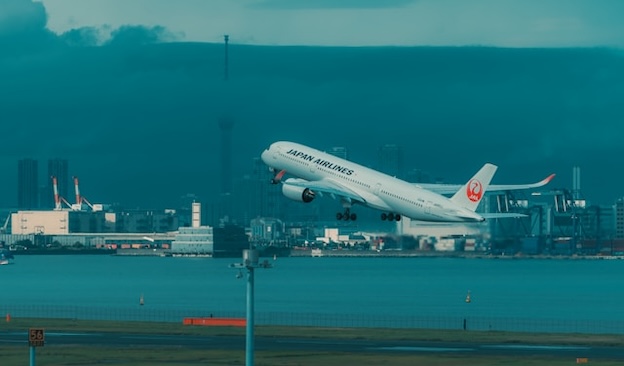
Understanding Japan's New Visa Pathways for International Students and Workers
Share this article
Japan has been actively expanding its visa system to welcome more international talent in response to its aging population and workforce shortages. For Sri Lankans looking to study, work, or build a future in Japan, understanding these pathways is crucial.

Why Japan Is Opening Its Doors
Japan faces significant demographic challenges with its rapidly aging population and declining birthrate. To address labor shortages across various sectors, the Japanese government has implemented major policy changes to attract international talent. These changes present unprecedented opportunities for Sri Lankans with the right skills and qualifications.
Student Visa Pathways
For Sri Lankans wanting to study in Japan, obtaining a student visa requires a Certificate of Eligibility (CoE) issued by a Japanese educational institution, a valid passport with at least 6 months validity, completed visa application form, recent photographs, proof of sufficient funds to cover tuition and living expenses, and a detailed study plan.
Many Sri Lankans begin their Japanese journey through language schools. This typically involves enrolling in a recognized Japanese language school, studying for 1-2 years while improving language skills, taking the Japanese Language Proficiency Test (JLPT), and then transitioning to higher education or employment.
After graduating from a Japanese university or vocational school, Sri Lankan students can apply for a designated activities visa for job hunting (up to 1 year), transition to work visas based on their qualifications, or access special programs for graduates of Japanese institutions.
Specified Skilled Worker (SSW) Program
The Specified Skilled Worker program, launched in 2019, has become a popular pathway for technical workers and continues to expand in scope. It offers two types of visas: SSW(i) and SSW(ii).
The SSW(i) visa is for workers with basic technical skills, available in 16 industries as of 2024. Requirements include being 18 or above, passing industry-specific skills tests, demonstrating Japanese language proficiency (typically JLPT N4 or equivalent), and it allows a maximum stay of 5 years total, though family accompaniment is not allowed.
The SSW(ii) visa is for workers with advanced technical skills, typically requiring completion of SSW(i). It allows for indefinite renewals and family members can accompany the visa holder, though it's available in select industries only.
In 2024, Japan expanded the SSW program to include four new industries: road transportation (drivers for taxis, buses, and trucks), railways, forestry, and timber/lumber processing. This expansion brings the total to 16 eligible industries, greatly increasing opportunities for skilled Sri Lankan workers.
Highly Skilled Professional Pathways
The J-Skip visa (Japan System for Special Highly Skilled Professionals) targets highly skilled professionals and offers significant benefits including eligibility for permanent residency after just one year, priority lanes at Japanese airports, and work permission for spouses. Requirements include advanced degrees (Master's or higher) or substantial professional experience with high income.
The J-Find visa (Japan System for Future Creation Individual Visa) targets recent graduates from world-ranking universities. It allows graduates to search for jobs or start businesses in Japan, offers a path for entrepreneurship, and is designed to attract international talent from prestigious institutions.
Application Process For Sri Lankans
Sri Lankan applicants typically need to prepare a passport valid for at least 6 months, completed application forms, recent photographs, Certificate of Eligibility (for most visa types), supporting documents specific to the visa category, proof of financial stability, and detailed travel or study/work plans.
Most visa pathways require demonstrating Japanese language skills. Student visas usually require JLPT N5 or higher, SSW visas typically need JLPT N4 or equivalent, and for business/professional visas, requirements vary but language skills are highly beneficial.
The visa application process generally follows these steps: secure a sponsor (school, employer, or guarantor in Japan), obtain Certificate of Eligibility (CoE), submit visa application at the Japanese Embassy in Colombo, allow 1-3 weeks for processing, and upon approval, receive visa and prepare for travel to Japan.
Opportunities for Sri Lankans
Sri Lankans with the following skills are particularly sought after: IT and technology expertise, healthcare professionals (especially nurses and caregivers), construction and manufacturing skills, agricultural knowledge, hospitality experience, and engineering backgrounds.
To maximize chances of success, invest in Japanese language learning (JLPT N4 or higher is recommended), build specific technical skills in demand in Japan, consider studying at a Japanese language school as an entry point, network with Sri Lankans already working in Japan, and work with reputable agencies that specialize in Japanese placement.
Challenges and Considerations
Be prepared for significant cultural differences. Japanese work culture emphasizes punctuality, hierarchy, and group harmony. Communication styles differ from Sri Lankan norms, and daily life routines and social expectations may require adjustment.
Ensure you have sufficient funds for initial settlement (typically 500,000-1,000,000 yen), budget for housing deposits (often equivalent to 3-4 months' rent), and emergency savings for unexpected situations.
While English is increasingly used in international companies, Japanese proficiency is essential for daily life navigation, career advancement, building social connections, and accessing services.
Conclusion
Japan's expanded visa pathways create unprecedented opportunities for Sri Lankans seeking international experience, education, and career growth. Whether through studying, specialized technical work, or professional career paths, Japan offers multiple routes for motivated Sri Lankans to build a future in one of Asia's most advanced economies.
By understanding these pathways and preparing accordingly, Sri Lankans can position themselves for success in Japan's evolving immigration landscape. The key to success lies in language preparation, skills development, and thorough research into the specific requirements for your chosen pathway.
Note: This article provides general information about Japan's visa system as of April 2025. Requirements and procedures may change over time. For the most current and specific information, consult the Embassy of Japan in Sri Lanka or official Japanese government websites.